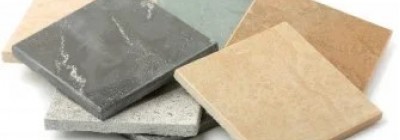
Imperiale marble is a type of marble that is quarried in Italy, Greece, and other parts of the world. It is characterized by its creamy white base color with subtle gray, brown, or black veining. The veining can be either straight or wavy, and it can vary in color and intensity.
Imperiale marble is a popular choice for a variety of applications, including countertops, backsplashes, and flooring. It can also be used for sculptures, fountains, and other decorative applications.
Here are some of the key characteristics of Imperiale marble:
- Color: Creamy white base color with subtle gray, brown, or black veining
- Origin: Italy, Greece, and other parts of the world
- Uses: Countertops, backsplashes, flooring, sculptures, fountains, and other decorative applications
Imperiale marble is a beautiful and versatile stone that can add elegance and sophistication to any space. It is a popular choice for contemporary and modern design styles.
Here are some specific examples of how Imperiale marble can be used in your home:
- Countertops: Imperiale marble countertops are a stunning and unique way to add a touch of luxury to your kitchen or bathroom. They are also very durable and easy to clean.
- Backsplashes: Imperiale marble backsplashes are a great way to add interest and depth to your kitchen or bathroom. They can also help to protect your walls from stains and spills.
- Flooring: Imperiale marble flooring is a durable and stylish option for both indoor and outdoor use. It is available in a variety of finishes, including polished, honed, and tumbled.
- Sculptures: Imperiale is a popular material for sculptures because it is strong and durable. It can be carved into a variety of shapes and sizes to create works of art.
Tips for caring for Imperiale marble:
- Wipe up spills immediately. Marble is susceptible to staining, so it is important to wipe up spills immediately with a damp cloth.
- Use a mild soap and water solution to clean marble. Avoid using harsh chemicals or abrasive cleaners, as they can damage the stone.
- Seal marble regularly. Sealing marble will help to protect it from stains and scratches.
Here are some additional details about Imperiale marble:
- Hardness: Imperiale marble has a Mohs hardness of 3.5 to 4, which makes it a relatively soft stone. This means that it is susceptible to scratching and staining.
- Density: Imperiale marble has a density of 2.6 to 2.7 grams per cubic centimeter, which makes it a relatively dense stone. This means that it is strong and durable.
- Absorbency: Imperiale marble has an absorbency of 0.1 to 0.2 percent, which makes it a relatively non-absorbent stone. This means that it is resistant to staining.
Overall, Imperiale marble is a beautiful and versatile stone that can add elegance and sophistication to any space. It is important to note, however, that it is a relatively soft stone that is susceptible to scratching and staining.
Specific differences between Imperiale marble and other white marbles:
Imperiale marble is distinguished from other white marbles by its subtle veining. This veining can be either straight or wavy, and it can vary in color and intensity.
Other white marbles, such as Carrara marble and Bianco Carrara, do not have the same subtle veining as Imperiale. They also tend to be less expensive.
Ultimately, the best white marble for your project will depend on your specific needs and budget. If you are looking for a beautiful and versatile stone with subtle veining, Imperiale is a great option.




Leave a Comment